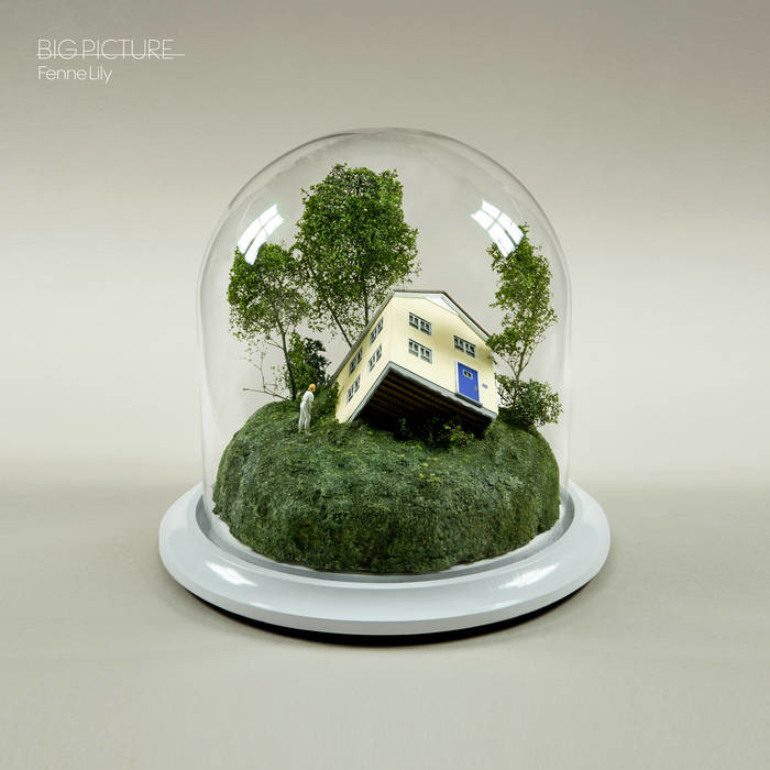

A Bittersweet Ode To Love & Life
Fenne Lily’s album Big Picture explores a bittersweet disenchantment with life. Following a creative slump she and many others experienced in the post-COVID world, Lily carefully translates this into an album of intricate lyricism, exploring the seemingly stale state of the world, examining her relationship with herself as well as with her ex-partner, all in all painting a careful picture of change and disillusionment.
Lily’s sound, distinctive in her soft, quivering voice, and paired with playful guitar melodies, creates a deceptively happy soundscape to underscore both her brutal honesty and vivid storytelling. Her more acoustic style lets her lyricism take the stage, placing an emphasis on storytelling through faint, mellow vocals.
The album’s opening with “Map of Japan” and closing with “Half Finished” reflect and encompass the entire message of the album. She opens the album repeating, “I’m tired of looking at the same old sky, you’re tired,” combining the tedium of life with the stagnant end to a relationship, a characteristic that continues throughout the album.
“Half Finished,” in turn, paints a final picture of this monotony, expressing her wishes to “picture a whole new life” and contemplating the weariness of the life she and her partner share, symbolized by the dissatisfaction of the symbol of the title itself. With the album starting and closing with tracks of general lethargy towards both life and love, Lily creates a cyclical feeling of fatigue with life as a whole.
Lily having experienced a breakup with her then-partner writes songs about her relationship with a bittersweet tone of imperfection and fragility, taking a careful reflective stance on her relationship and its now visible shortcomings and flaws.
In “Pick,” one of the best-performing tracks off the album, she ruminates on several questions, asking “was it a bad time to love you?” from both her perspective and that of another woman, exposing the general lack of substance to her partner’s love. She concludes on the note that “nothing is the one thing that lasts forever” to tie back to earlier messages in “Dawncolored Horse” regarding the authenticity of love and the tedious nature of their relationship.
In “Red Deer Day” she furthers this bittersweet image of a breakup, illustrating vivid images of memories together underscored by isolated chord patterns and a pure acoustic set to create a deeper intimacy within the storyline. She sees value in the relationship, repeating the phrase “I’ll be alright in time” amidst a growing acoustic soundscape, seeing both the beauty and the pain in their separation.
Lily’s lyricism and sound stand as the most prominent trait of the album. The use of soft sultry tones and acoustic instrumentation creates a playful intimacy with the audience to contrast against the disenchanted honesty of her message. Lily further connects to listeners in her shared genuine experiences of disillusionment both with love and life in a post COVID realm, encompassing the themes of her album in the very relatable experiences of confusion, catharsis and general boredom.
